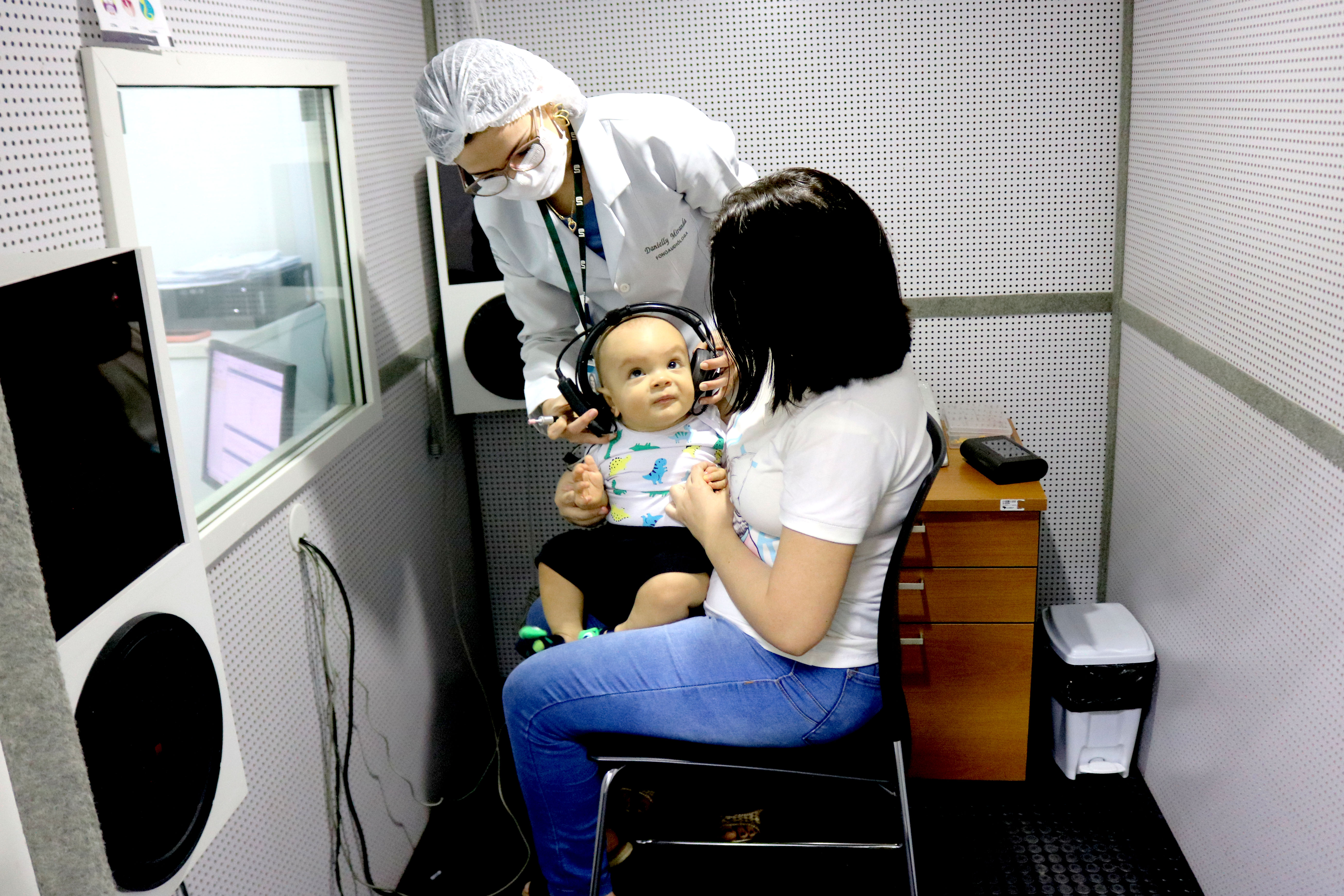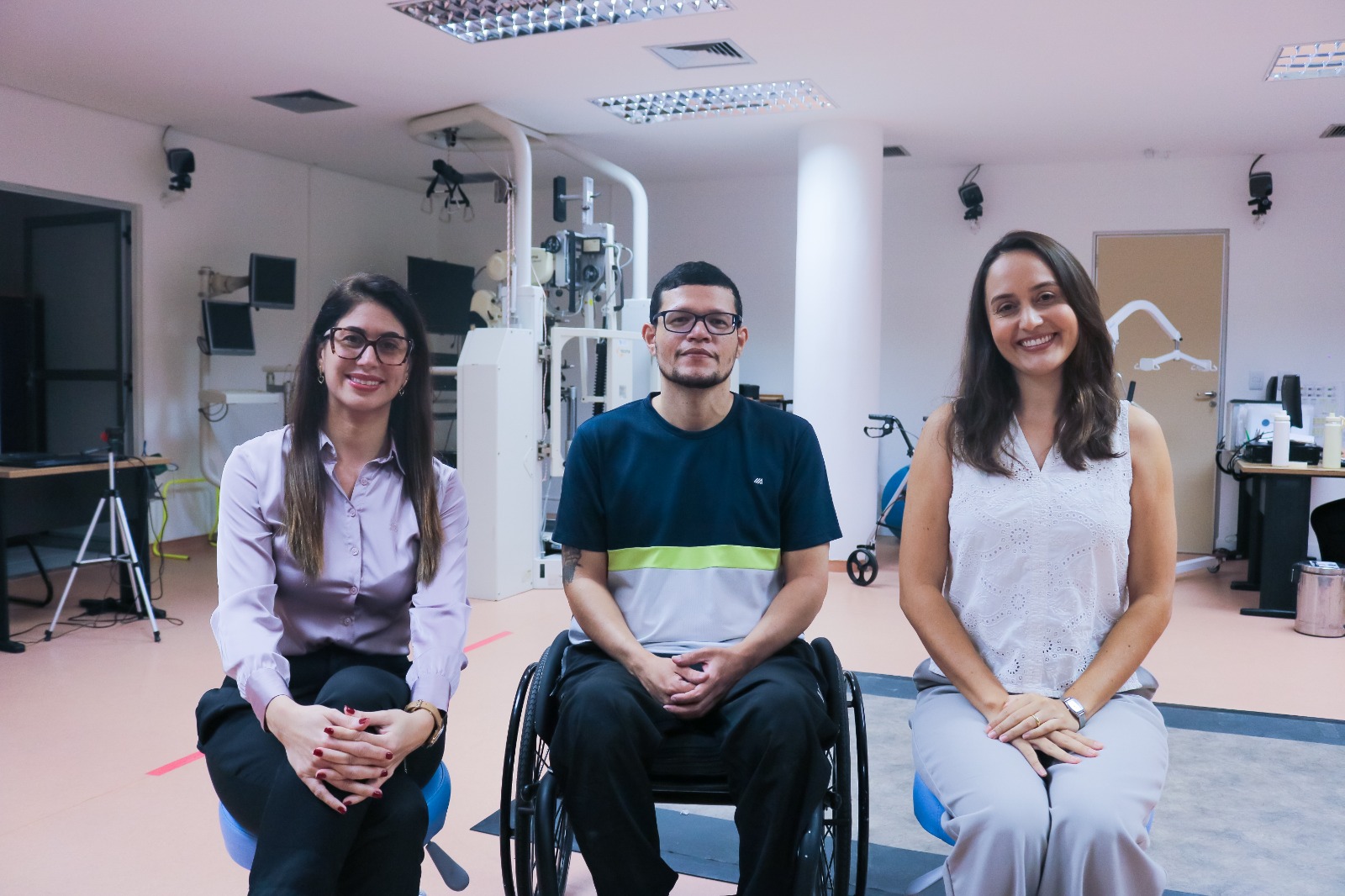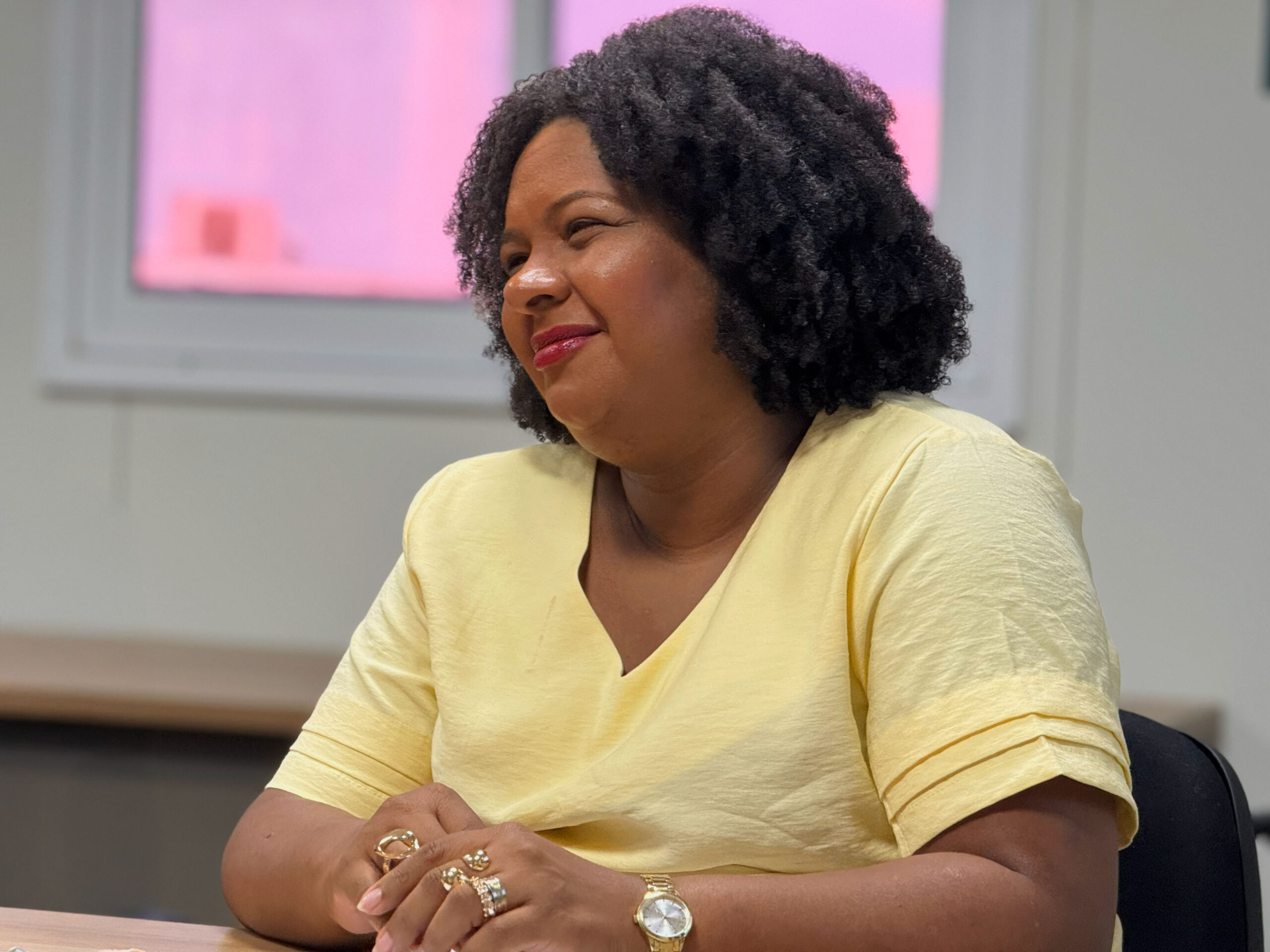Have you ever imagined the feeling of always hearing the same noise or noise over and over again? Sea waves, a hiss, a siren and even the sound of a pressure cooker whistle on the fire: this is how patients suffering from tinnitus describe the perception of a sound, which is not generated by an external sound source, in the ears or in the head. To alert the population about the issue, the month of November is also known as Orange November, marked by National Tinnitus Awareness Day, on November 11th.
Around 20% of the world's population has some degree of hearing impairment or suffers from tinnitus. According to the Federal Council of Speech Therapy, in Brazil, approximately 28 million people are affected by the problem, which is not considered a disease, but a warning sign of hearing loss.
Multi-professional speech therapist preceptor Rogéria Dias, who works at the Hearing Rehabilitation clinic at the Anita Garibaldi Health Education and Research Center, at the Santos Dumont Institute (ISD), explains that the causes can be related to the most diverse natures. “Tinnitus can arise from vascular problems, cardiac and hormonal changes, metabolic problems, muscular changes in the head and neck region, as well as dental deformities. Jaw problems and sensory injuries may also be associated with this discomfort. Furthermore, there are studies that show that tinnitus is present in 80% cases of hearing loss,” he said.
At Anita, among the interventions in auditory rehabilitation are treatment using hearing aids, a multidisciplinary approach with psychologists, physiotherapists and social workers and the tinnitus therapeutic group, which brings together six patients, preceptors and ISD residents and is the first therapeutic group in the Rio Grande do Norte focused on this theme, according to Rogéria.
Maria da Conceição Nóbrega, one of the patients monitored at Anita who participates in the tinnitus group, says that she suffered a lot from the discomfort until she learned how to deal with it better. “I felt like I was having a heart attack, I was short of breath, the tinnitus increased, I went to the hospital thinking it was a heart attack, I couldn't sleep with the noise bothering me. When I started being accompanied at Anita, I saw that other people suffered from this and that was when I started to adapt, my sleep improved, I even learned to breathe properly, because I didn't know how to breathe when I was nervous”, she says.
In addition to tinnitus, Conceição has profound hearing loss in one ear and has been using a hearing aid for just over a month. “The hearing aid is one of the interventions that greatly help those with hearing loss with tinnitus, as it helps to amplify the sounds we normally hear, people talking, ambient sound, a fan noise, and tinnitus is no longer the only something that person feels like they hear all the time”, explains Rogéria Dias.
Tinnitus and the pandemic
A significant increase in cases of auditory hypersensitivities is pointed out by ProfThe. DoctorThe. Tanit Ganz Sanchez, specialist recognized worldwide as an authority on tinnitus research and treatments and creator of Orange November.
The otorhinolaryngologist highlights, according to insights from clinical care, that the number of medical appointments regarding tinnitus and auditory hypersensitivities has increased significantly. “Around 60% of patients treated declare that their symptoms began or worsened in 2020, either due to social isolation imposed at the beginning of the year or due to Covid-19 itself. Only 40% of current patients say they already had symptoms before the pandemic and did not notice a difference in them”, said the otorhinolaryngologist with a PhD from the University of São Paulo (USP).
Tanit is a specialist and researcher in what she calls the “ear gang”, which includes tinnitus, hyperacusis, that is, the discomfort with the volume of sounds, and misophonia, which is the discomfort with low, repetitive sounds, such as the clicking of a pen or even common sounds like breathing and chewing. “Tinnitus, misophonia and hyperacusis are symptoms of more fragile ears, who need more care with daily aggressions, in addition to the careful investigation of their causes at an early stage”, he explained.
Treatment
There are several forms of treatment for tinnitus, recommended according to the causes identified in each case. “When the patient comes to us, we try to identify the frequency range of this tinnitus, its intensity, through audiometry and quantitative assessments, to understand whether the impact is emotional or functional, for example. Once the cause of the tinnitus is identified, we direct you to a specific therapy for each type of case”, said speech therapist Rogéria Dias.
According to the specialist, the right thing to do is to follow up with a professional speech therapist and an otorhinolaryngologist who can indicate the best form of treatment, such as dietary changes, medications, sound therapies and adaptation of hearing aids.
Text: Kamila Tuênia / Ascom – ISD
Photograph: Ricardo Araújo / Ascom – ISD
Communication Office
comunicacao@isd.org.br
(84) 99416-1880
Santos Dumont Institute (ISD)
It is a Social Organization linked to the Ministry of Education (MEC) and includes the Edmond and Lily Safra International Institute of Neurosciences and the Anita Garibaldi Health Education and Research Center, both in Macaíba. ISD's mission is to promote education for life, forming citizens through integrated teaching, research and extension actions, in addition to contributing to a fairer and more humane transformation of Brazilian social reality.













